Problems with difficult solutions
.

Pakistan's present circumstances are regrettably not very favourable. Politics is conflictual and democratic values are blatantly defied by the political leadership. The occasional involvement of the establishment in politics is another factor that distorts constitutional obligations. PTI, whose leader Imran Khan is undergoing a 14-year prison sentence and many of its senior leaders are either in jail or are facing charges, remains under great pressure. The absence of PML-N top leadership from the country and Nawaz Sharif exercising control over party and government affairs remotely is not an ideal arrangement either. The parliament, with a gagged opposition, is witnessing bitter exchanges further vitiating the political environment. But what one infers from the proceedings in the parliament and the statement of leaders is that with a few exceptions there does not seem a serious effort at correcting course. Promoting economic development, pursuing a mature political course and improving the adverse security situation are challenging endeavours for any government. With the exception of those who are directly affected, one does not see any strong reaction from the public or the civil society to the prevailing conditions either. This lack of urgency in correcting course from the downward slide has consequences and does not augur well for the state. It has a direct bearing in the context of influencing and shaping the regional power balance. And Pakistan has regressed - something that is signified by the state of its relations with the regional powers as well as the world.
There are other indicators as well that need to be closely watched by the political leadership. For example, is there any cultural impact during their period in office from the policies and conduct that were or are being pursued? And does it not need a change from the hereditary and aristocratic model of leadership to a middle class and meritocratic one? In all fairness there has been a change but somewhat slow but time is not on our side as several nations move forward at a faster pace. The lingering influence in our country of privileged class in politics and economic power still persists and serious efforts to harness it are not visible.
In the country's interest and people's well-being, the political parties should fully support improvement initiatives and focus on merit. However, when one looks at the people in power all around, one is not sure if they are pursuing these goals with determination. Moreover, there has to be a realisation that so long as the country adheres strictly to democratic norms, efficiency and credibility of the process will be evident. By now, after seventy-seven years since the independence, we should have been able to fully achieve these goals, preferably through incremental changes. But for this there has to be a commitment on the part of leadership, an earnest resolve which is only half-hearted and, in few cases, even absent.
As regards our foreign policy it reflects strong reliance on China and is rooted in economic and security considerations. What is critical is to realise that China's phenomenal progress came primarily through its focus on economic development and political stability. The Chinese leadership expects Pakistan to seriously promote economic interests and concentrate on its security challenges. Presently, our economy is growing at a slow pace, incompatible with the needs of the nation and far less than major countries of the region. We have the example of South Korea that progressed rapidly and enhanced its political influence after its economy became strong and security situation came under control. Malaysia and Indonesia too have developed their economies apart from improving the quality of life of their people, thus enhancing their national power.
Pakistan at present is not among favoured destinations for investment. But if there is a determined effort to improve security and developed infrastructure, the situation would change significantly. It is also critical that the government gives a high priority to the major concerns of foreigners. The cost of political wrangling and troubled security situation is high and perhaps there is not sufficient realisation of it. Moreover, the suppression of PTI, a major political party, and the dominance of a single party is a challenge to established norms and pluralism which is the essence of democracy. In our country where these traditional and well-recognised norms are frequently violated, weaknesses in governance, corruption and abuse of power become a common phenomenon.
In these times when our weaknesses are dragging us down it is important to recall, as many eminent thinkers have pointed out, that during the Middle Ages and thereafter when Europe was 'slowly awakening from its state of slumber', the sayings of Islamic scholars greatly influenced Western thought by translations of ancient writers. This reiterates the view that no country or people have a monopoly of wisdom or greatness.
For Pakistan to earn its rightful place in the comity of nations and in the subcontinent, we need to get over with our state of slumber. And in this the role of leaders and political parties is critical.
First and foremost is to give a high priority to ensuring that the younger generation has access to primary and secondary education. And avenues are open for students for higher education that is combatable with the needs of modern times. Equally important is that the country is safe and TTP and other powerful and violent anti-state terrorist groups are neutralised. The government is able to fully reassert its power and an environment is created in which the rule of law and justice prevails. As of now there are pockets or places in the border areas in Khyber-Pakhtunkhwa and Balochistan where the writ of the state is weak and anti-state elements are dominant. The government has to ensure the full reassertion of state power in border areas in which the rule of law prevails; the Constitution is deemed supreme; and people are free to vote during elections. At present, the situation is fluid and there are pockets where the authority of the state is weak and militants are dominant.
Addressing the various major challenges affecting the security and economy successfully would lead to people optimising their potential and enabling the country to prosper.






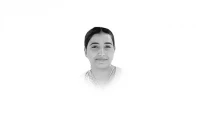

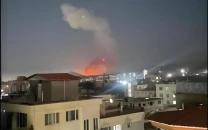
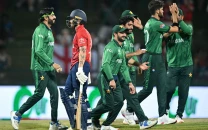

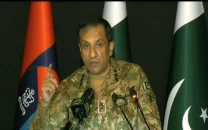
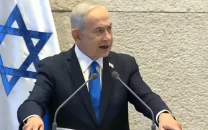


COMMENTS
Comments are moderated and generally will be posted if they are on-topic and not abusive.
For more information, please see our Comments FAQ